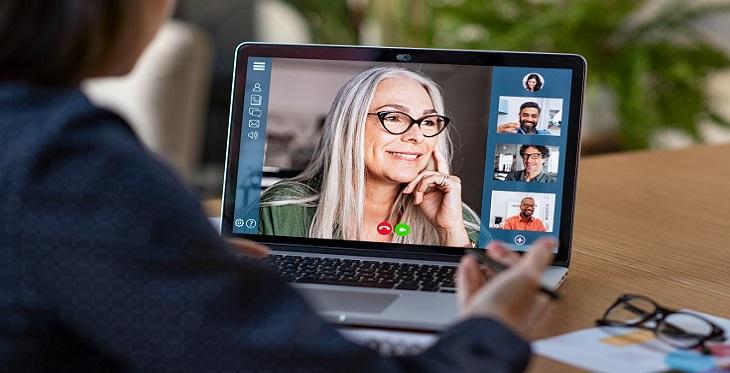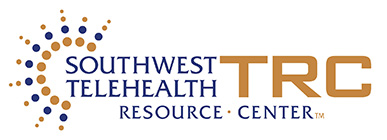
Let’s do more interprofessional consultations! And let’s start by calling them e-consults.
What are e-consults?
Electronic consults (e-consults) are asynchronous clinician-to-clinician exchanges that are used when there is not a need for a face-to-face (in person or telehealth) visit between a clinician/specialist and a patient. Under the umbrella of telehealth, e-consults are considered a store and forward option that uses telephone, Internet and/or an electronic health record (EHR). Patient information that has been gathered and documented is provided by the treating/requesting clinician to a consultative physician with a request for medical advice and/or an opinion. According to the Centers for Medicare & Medicaid Services (CMS) “…these inter-professional consults are typically initiated by a primary care practitioner to a specialist for a low acuity, condition-specific question that can be answered without an in-person visit". CMS also considers e-consults as assessment and management services.
Why should we do more e-consults?
The primary reason I’m writing this blog is because e-consults are a huge time and hassle saver for patients! Because I work at the front lines of health care service delivery, I’m here to tell you that e-consults are grossly underutilized. Calling to make an appointment, navigating the system to where a patient needs to go, getting transportation, child and other care coverage, and taking time off from work are significant barriers to making and keeping appointments. E-consults are like hitting the patient easy button on referrals – when appropriate, of course.
Don’t get me wrong. E-consults are also fantastic for clinicians for both the outpatient and inpatient settings. E-consults are a great alternative to “curbside” consults when a clinician will email or talk to another clinician (specialist or other clinician). While most specialists love helping their colleagues through these “curbside” consults, providing “free” advice can take time that specialists don’t have and can lead to concerns about patient safety because there is no record of the exchange of information, which may be misconstrued or misunderstood.
How can we promote e-consults?
- Make sure everyone, especially patients, knows about e-consults. Wouldn’t it be great if patients were included in the decision-making process to decide if an e-consult is better than a referral to see a specialist in person? Know whether and who is using e-consults at your health care organization(s) regardless of whether it’s where you work or where you receive your health care.
- Embed e-consults into current referral tracking workflows in ways that make it easy for clinicians to make referrals for e-consults. Closed-loop referral tracking can take an immense amount of resources (e.g., staff, time), and having a different process for e-consults can make matters worse. Consider how the referral will be closed when the verbal or written report is provided to the patient’s treating/requesting physician or other qualified health care professional. What happens if the report is provided directly to the clinician without the referral coordinator? Consider what your workflows are and how you can make e-consults work in a way that is efficient and keeps patients safe.
- Learn the details about e-consults. Unlike many other options for expanding access and enhancing services for patients, CMS has not created any educational materials. See the helpful e-consult resources.
- Ensure reimbursement. Know the billing codes and make it easy for the clinicians on both sides of e-consults to bill for their services. Reimbursement may differ among insurers. For example, not all state Medicaid agencies reimburse for all five of the e-consult codes (or may not reimburse for any), and Medicare does not reimburse Federally Qualified Health Centers (FQHCs) and Rural Health Clinics (RHCs) for e-consults. FQHCs and RHCs can still use e-consults for the convenience of their patients, and knowing the codes, details and reimbursement can aid in discussions with specialists who may be new to e-consults.
- Know which of your specialists will do e-consults and cater to what their needs are. Certain specialists may require specific patient information before agreeing to offer medical advice or an opinion (e.g., latest AIC for patients with diabetes).
Let’s do this! More e-consults, please!
Helpful Resources:
- Interprofessional Consultation: A Patient-Centered Referral Option. Comagine Health. Includes decision tree/workflow, codes, descriptions and reimbursement amounts for the five codes.
- E-Consults – Collaborating in a Remote World. CaravanHealth. Nicely done two-page summary of e-consults and the codes.
- Planning, Implementing and Expanding E-consult: Guide for Integrated Delivery Health Systems. E-Consult Workgroup. Exhaustive list of questions to ask and answer when implementing e-consults. In my opinion, I would like to see more emphasis on using the five e-consult codes – when and how can they be used to capture reimbursement? Note that E-Consult Workgroup is made possible by the California Health Care Foundation and other sponsors.
- Electronic consultations (e-consults) to improve access to specialty care: A systematic review and narrative synthesis. Journal of Telemedicine and Telecare. See the very straightforward e-consult steps graphic in Figure 2 as well as the other findings from the systematic review.
- Telemedicine and eConsults for Hospitalized Patients During COVID-19. Urology. Short 2.5-page article that is not entirely specific to the inpatient setting and urology and includes a nice section on workflow and other e-consult details.
- 2 new codes developed for interprofessional consultation. American Academy of Pediatrics (AAP) News. Great information and summary, including a helpful table and FAQs.


